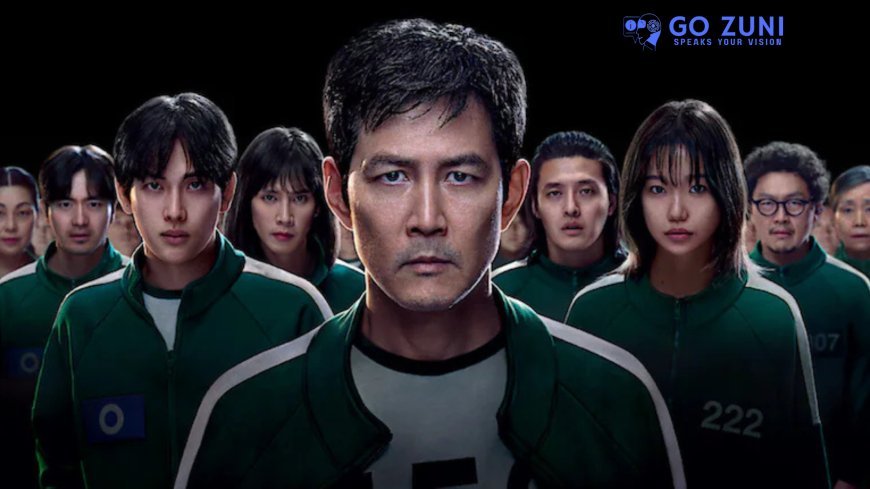The Evolution of the Storyline from Season 1 to Season 3: Squid Game’s Dark Descent into Human Nature
Explore how Squid Game evolved from Season 1 to Season 3, tracing story arcs, character growth, and the deeper meanings behind Netflix’s survival thriller.

The Hook: What Squid Game Teaches Us About Systems, Strategyand Ourselves
If youve ever found yourself watching Squid Game at 2 a.m. on Netflix and wondering, What would I do in that situation?youre not alone. I first watched the show during a sleepless weekend, thinking it would be a one-episode experiment. Three seasons later, Im still unpacking the layers of meaning, the raw intensity, andoddlythe professional parallels I see between the game and real-life systems in tech.
Yes, you heard that right. Theres something about the structure of Squid Game that echoes the pressures, hierarchies, and ethical dilemmas we sometimes face in the IT world. But before we go all Black Mirror on you, lets dive into how Squid Games story evolvedfrom the brutal simplicity of Season 1 to the mind games of Season 3.
Season 1: The Shock Factor That Started It All
When Squid Game first landed on Netflix, no one saw it coming. It wasnt just the deadly childrens games that gripped audiencesit was the very human desperation behind each players decision to risk everything.
At its core, Squid Game Season 1 was about survival. The characters were raw, flawed, and relatable. Gi-hun (Lee Jung-jae), a broke chauffeur drowning in debt, wasnt your typical hero. But neither were any of the other players. The brilliance of Season 1 was in its simplicity: a high-stakes game with no clear villain, just a system designed to exploit.
The introduction of Hwang In-ho, the mysterious Front Man, added a sense of looming powersomeone pulling the strings, always watching. It felt like the beginning of something bigger, though we couldnt yet see what.
Season 2: Beyond the GameUnmasking the Power Structures
Where Season 1 was about individuals trapped in a cruel system, Squid Game Season 2 started peeling back the layers of that system. We began to understand that the games werent just entertainment for the elitethey were a ritualized form of control.
This season gave more attention to Hwang In-ho and his brother, police officer Jun-ho, whose subplot added a thriller-like twist. It became clear that the Front Man wasnt a mere antagonisthe was a former player, a survivor, a warning.
And lets talk about the Squid Game cast. Characters like Sae-byeok in Season 1 left such a deep impact that their absence in Season 2 was palpable. Thats when we met new faces, like Kang No-eulwho brought a subtle, introspective energy to the game, reminding us that strength isnt always loud.
Season 2 also delved deeper into the idea of complicity. It posed harder questions: What happens when victims become enforcers? How much power corrupts? And what does it take to step outside the game entirely?
Season 3: The Game Becomes Globaland Psychological
By the time we reach Squid Game Season 3, the stakes are no longer just physicaltheyre ideological. The game has evolved, the players are sharper, and the consequences extend beyond life and death.
Season 3 feels like a culmination. The showrunners clearly knew they had to raise the bar, and they did. This isnt just about survival anymoreits about resistance, revolution, and responsibility. The narrative zooms out to explore how different nations react to the concept of the game, hinting at global corruption and decentralized control.
Kang No-eul returns as a leader of a breakaway faction within the game, adding a layer of psychological warfare and social commentary. Meanwhile, Hwang In-ho's arc becomes even more tragic. No longer just a masked figure, he is torn between preserving the tradition and dismantling the monster he helped shape.
This season feels the most cerebral. The physical games are fewer, but the mental ones? Absolutely brutal.
And while its tempting to hop over to 123 movies for a rewatch (dontwe all know its sketchy), I highly recommend a full rewatch via official channels. Squid Game on Netflix is crafted with such detail that every rewatch reveals something new.
What It All Means for Viewersand Thinkers
If youre exploring a career in IT, you might not expect a Netflix survival thriller to hold lessons for youbut it does. Squid Game is ultimately about systems: who builds them, who follows them, and who dares to change them.
As developers, project managers, or cybersecurity pros, we operate within systems every day. Like the players in the game, were often handed rules and told, This is how things are. But Season 3 shows us the power of questioning that frameworkof being the coder who doesnt just fix bugs, but rewrites the code.
So the next time youre debugging a server or pitching a new UX flow, remember: the real game isnt about following the rules. Its about knowing when to rewrite them.
Conclusion: Were All in the GameSo Lets Play Smart
From Season 1s brutal games to Season 3s ideological battles, Squid Game has grown into a reflection of real-world power, choice, and consequence. Its not just about who survives, but who dares to challenge the system.
Whether you're a fan of Netflix thrillers, a curious Squid Game analyst, or someone navigating your own professional mazetheres something to take away from this evolution. And hey, if Kang No-eul can find her voice in the chaos, so can you.































